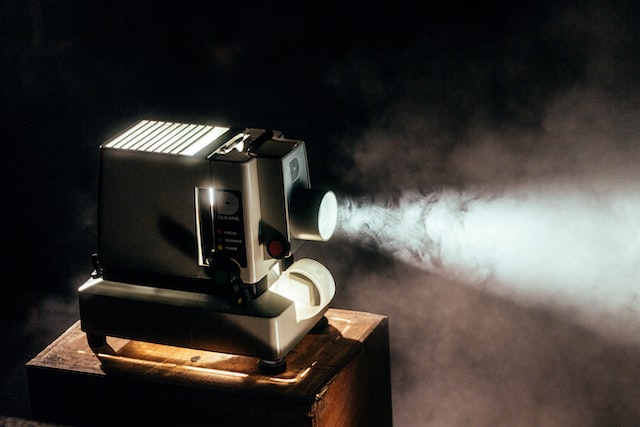If you’re in the market for a projector, you may be wondering if 8000 lumens is enough for optimal performance. Lumens are a measure of brightness in projectors, and they can play a significant role in the overall image quality. With so many projectors on the market, it can be challenging to know which one is the right fit for your needs. In this blog, we’ll explore the importance of lumens in projector performance and answer the question: “Is 8000 Lumens Good for a Projector?” Whether you’re creating a home theater, setting up a presentation, or using a projector for educational purposes, understanding the role of lumens can help you make an informed decision. Let’s get started!
Table of Contents
Is 8000 Lumens Good for a Projector?
When it comes to projectors, lumens are a key factor in determining image brightness and overall image quality. While 8000 lumens may seem like a high number, whether or not it’s good for your projector depends on your specific needs.
For commercial or large venue settings, 8000 lumens may be a good choice, as it provides ample brightness for presentations or displays in brightly-lit rooms. However, for home theaters or smaller venues, 8000 lumens may be excessive and potentially even harmful to the eyes if viewed for extended periods.
Additionally, higher lumens do not always equate to better image quality. While brightness is important, it’s not the only factor to consider when selecting a projector. Color accuracy, contrast, and resolution all play a critical role in image quality as well.
In general, a projector with a lower lumen count may be sufficient for home theater use, as these environments are typically darkened for optimal viewing. A lumen count between 1000-2000 may be suitable for a small space, while 3000-4000 lumens may be appropriate for larger rooms.
Ultimately, the decision of whether 8000 lumens is good for a projector depends on your individual needs and the environment in which the projector will be used. When selecting a projector, it’s important to consider all factors, including lumen count, color accuracy, contrast, and resolution to ensure the best possible image quality.
Is 7,000 lumens good for a projector?
When it comes to projectors, lumens are a key factor in determining image brightness and overall image quality. 7,000 lumens is a high lumen count, which can provide bright and clear images, but whether or not it’s good for your projector depends on your specific needs.
For commercial or large venue settings, 7,000 lumens may be a good choice, as it provides ample brightness for presentations or displays in brightly-lit rooms. However, for home theaters or smaller venues, 7,000 lumens may be excessive and potentially even harmful to the eyes if viewed for extended periods.
It’s important to keep in mind that higher lumens do not always equate to better image quality. While brightness is important, it’s not the only factor to consider when selecting a projector. Color accuracy, contrast, and resolution all play a critical role in image quality as well.
In general, a projector with a lower lumen count may be sufficient for home theater use, as these environments are typically darkened for optimal viewing. A lumen count between 1000-2000 may be suitable for a small space, while 3000-4000 lumens may be appropriate for larger rooms.
Ultimately, the decision of whether 7,000 lumens is good for a projector depends on your individual needs and the environment in which the projector will be used. When selecting a projector, it’s important to consider all factors, including lumen count, color accuracy, contrast, and resolution to ensure the best possible image quality.
Is 9000 lumens good for a projector?
When it comes to projectors, lumens are a key factor in determining image brightness and overall image quality. 9,000 lumens is a high lumen count, which can provide bright and clear images, but whether or not it’s good for your projector depends on your specific needs.
For commercial or large venue settings, 9,000 lumens may be a good choice, as it provides ample brightness for presentations or displays in brightly-lit rooms. However, for home theaters or smaller venues, 9,000 lumens may be excessive and potentially even harmful to the eyes if viewed for extended periods.
It’s important to keep in mind that higher lumens do not always equate to better image quality. While brightness is important, it’s not the only factor to consider when selecting a projector. Color accuracy, contrast, and resolution all play a critical role in image quality as well.
In general, a projector with a lower lumen count may be sufficient for home theater use, as these environments are typically darkened for optimal viewing. A lumen count between 1000-2000 may be suitable for a small space, while 3000-4000 lumens may be appropriate for larger rooms.
Conclusion
In conclusion, the optimal lumen count for a projector depends on the environment in which it will be used and the individual needs of the user. While a high lumen count can provide bright and clear images, it may be excessive for smaller venues or home theaters. It’s important to consider all factors, including lumen count, color accuracy, contrast, and resolution when selecting a projector to ensure the best possible image quality. Whether you’re using a projector for commercial or personal use, taking the time to research and evaluate your options can help you make an informed decision and enjoy optimal performance for your projector.

